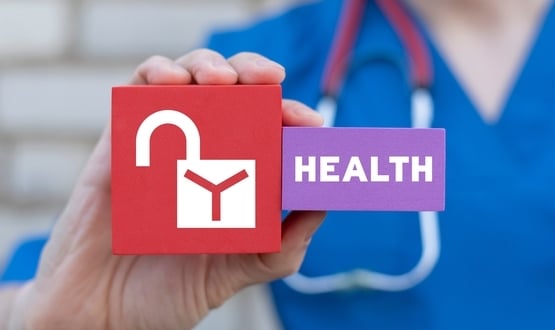Boston Consulting Group research reveals importance of healthcare data
- 19 July 2023

The Boston Consulting Group Centre for Growth has published its report on healthcare data which shows overwhelming support from the public for unlocking the value of the UK’s data and sets out how the opportunity for leveraging healthcare data can be grasped.
The ‘Towards a healthier, wealthier UK: unlocking the value of healthcare data’ report takes a closer look at how the UK can capitalise on healthcare data and simultaneously tackle two of the most pressing challenges in society: the poor outlook for the economy and the weight on our healthcare system.
The topic of leveraging healthcare data has been raised in the UK multiple times, yet never truly been captured. According to Boston Consulting Group, the key is gaining public support in the use of healthcare data and then reinvesting the value of it into the healthcare system.
Unlocking healthcare data has been proven to have multiple benefits. For example, Royal Free London NHS Foundation Trust was able to save £2,000 on hospital admissions for patients with acute kidney injury by using an app that brought together data from blood tests, medical history and clinical decision tools to alert clinicians if a risk was detected.
Elsewhere a Dutch network of seven teaching hospitals was able to achieve reductions of nearly 30% in unnecessary inpatients stays, and as much as 74% in reoperations due to complications. To do this it implemented a value-based health care approach and defined the right metrics to improve outcomes before it began to share data across the hospitals.
Lord O’Shaughnessy, founder of Newmarket Strategy and former parliamentary under secretary of state at the Department of Health, said: “If used correctly, healthcare data can improve both the health and wealth of the UK.
“That can only happen if there’s a bedrock public trust, and the best way to achieve that is through a nationwide, comprehensive and dynamic process of public deliberation and decision-making.
“As BCG’s report and survey highlight, when people are engaged on the detail of health data usage they’re often more supportive than is assumed, but – quite rightly – they want to be involved in setting strategy.”
Unlocking value
The report found 90% of people are willing to share their data with the NHS for any purpose – in contrast to the broad misconception that the public’s default position is to oppose access to personal health data.
This public support however, is dependent on how data will be used. The use of healthcare data should be focused on delivering positive outcomes around prevention, understanding diseases, clinical trials and clinical care – rather than focused on processes as it is now.
The report found that 73% supported their healthcare data being used to help understand their likelihood of illness, while 72% were happy for it to be used to enable improvements in clinical care processes.
Unsurprisingly, the public were keen to be involved in conversations around healthcare data use. Seventy three percent wanted to be proactively told about the use of their data, highlighting the need to engage the public in wider conversations around the issue.
This is something that is already happening in the capital. This month a meeting of the OneLondon Citizen Advisory Group, saw the finalisation of a set of recommendations that will help inform the work of the London Health Data Strategy.
When it came to the issue of profit, the majority of survey respondents were happy for their healthcare data to generate profit – but only is some of the value is reinvested into the healthcare system or there are wider benefits.
Healthcare data recommendations
The Boston Consulting Group report ultimately made its recommendations for how the value of healthcare data can be realised. These include:
- Detail the outcomes from specific use cases of making healthcare data more accessible to generate public support and understanding.
- Launch a joined up public engagement campaign across all NHS data projects, specifically explaining how better data use can deliver tangible benefits.
- Use public decision panels and data usage registers for engaging the public in decisions around how their data will be accessed and used to ensure they have a stake and a say in the decision-making process.
- Set up a central fund to reinvest value captured in local NHS systems.
Lord O’Shaughnessy added: “Politicians and policymakers must be brave and embrace a major public engagement programme around this issue.
“They need to publicly make the case for how and why healthcare data can make a meaningful difference to the challenges facing the UK. Without this engagement we risk squandering the opportunity.”




